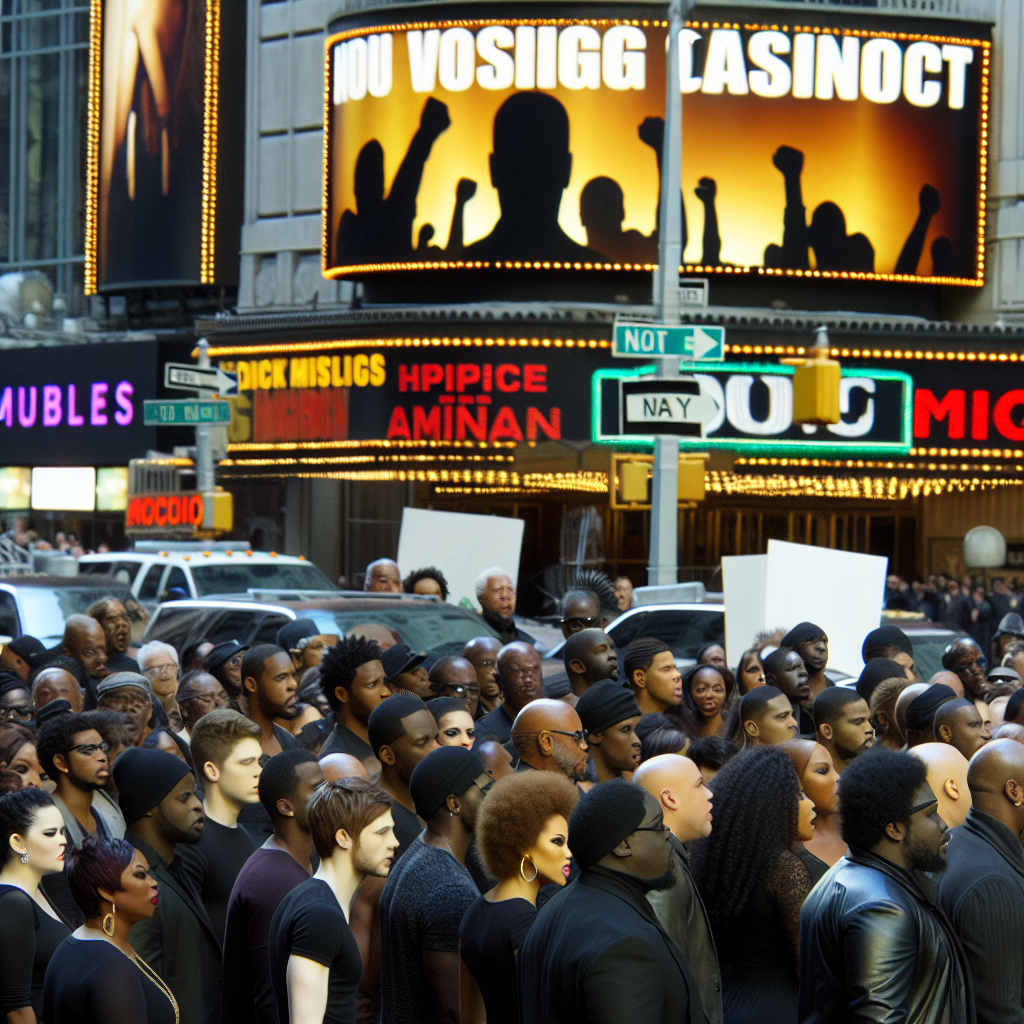
Times Square Casino Jay-Z: A Vision Undone
The ambitious proposal for a casino project in Times Square, backed by entertainment mogul Jay-Z, has faced formidable resistance. A community advisory committee, attentive to the neighborhood’s unique cultural tapestry, played a pivotal role in halting the development. The project’s allure, promising economic uplift and new entertainment options, was overshadowed by deep-rooted concerns about its impact on Broadway’s storied identity. (REPORT: AP – Broadway opposition stops Times Square casino project)
As this saga unfolds, the heart of the debate centers on the delicate balance between modernization and preservation. The community’s resistance highlights the broader tensions in urban planning, where economic incentives often clash with cultural preservation. How do these dynamics shape the future of urban centers like Times Square?
The failed project was anything but small — it was a $5.4 billion plan to transform the office tower at 1515 Broadway into a Caesars-branded hotel, casino, and entertainment complex. The proposal carried heavyweight backers, including Jay-Z through his Roc Nation company, civil rights leader Rev. Al Sharpton, and former NYPD Commissioner Bill Bratton. Yet, despite the financial scale and celebrity endorsements, the project could not overcome the widespread opposition from Broadway theater owners, performers, and local residents.
The case underscores how community identity and heritage can trump mega-projects—even with big money backing.
The Market Landscape of Casino Projects
Globally, the casino industry continues to evolve, with regions such as the Asia-Pacific and North America showing robust growth. Yet, the Times Square casino project exemplifies the challenges faced when local opposition arises. Urban areas, especially those with rich cultural legacies, often see mega-projects as double-edged swords: potential economic boons that might erode local character.
In the case of Times Square, Jay-Z’s involvement added a layer of celebrity appeal. However, even high-profile backing could not sway the community’s staunch defense of Broadway’s charm. This situation reflects a growing trend where communities assert their influence over large-scale developments, emphasizing the importance of aligning new ventures with local values and heritage.
Future of Urban Developments: Lessons from Times Square
The rejection of the Times Square casino Jay-Z project offers critical insights into the dynamics of urban development. It highlights the need for project proponents to engage deeply with local communities, ensuring that new ventures resonate with the area’s cultural and social fabric. This is not a legal opinion, but rather an observation of evolving urban dynamics.
Looking ahead, developers may need to adopt more inclusive strategies, integrating community feedback from the outset. Understanding and respecting the unique qualities of each locale will likely become a cornerstone of successful urban projects. As the casino industry continues to expand, these lessons will be invaluable in navigating the complex intersection of progress and preservation.
Keep up with evolving Times Square casino Jay-Z angles — join CasinoVVV updates.
What was the proposed Times Square casino project?
The project was a plan to develop a casino in Times Square, backed by Jay-Z, aiming to boost tourism and entertainment in the area.
Why did Broadway oppose the Times Square casino project?
Broadway opposed the project due to concerns over increased congestion, potential harm to the theater district’s cultural environment, and the impact on local businesses.
Who were the key stakeholders against the casino project?
Key stakeholders included Broadway theater owners, local business groups, and community associations who were worried about the project’s implications.
How did Broadway’s opposition impact the project’s outcome?
Broadway’s strong opposition, highlighting potential negative effects on the cultural and economic landscape, contributed significantly to the project’s cancellation.
What were the arguments presented by the project’s supporters?
Supporters argued that the casino would bring economic benefits, increase tourism, and create jobs, emphasizing the potential for revitalizing the area.
Read also: Beginner’s Guide To Casino Movies Learning Culture Through Film • MGA Casino Licenses: Why Malta Leads In IGaming Regulation
